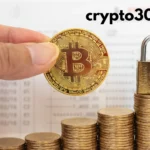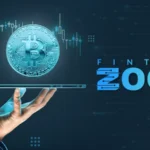Amazon has up to date its phrases of buy for its US Kindle e-books, making it clear that prospects are licensed content material slightly than possession. The brand new assertion reads:By inserting an order, you buy a license for the content material and comply with the phrases and situations of use of the Kindle Retailer.“This replace is restricted to US prospects. Worldwide customers proceed to take a look at the earlier language, however the message is similar. You do not personal it. We’re simply letting you utilize it.
From February twenty sixth, 2025, Amazon will probably be providing “Obtain and switch by way of USBKindle machine options. Which means that customers will not have the ability to obtain Kindle books on to their computer systems, as entry to bought content material is fully depending on Amazon’s cloud infrastructure. This variation factors to delicate truths about possession and reinforces easy info. If another person can take it, it is not yours.
This isn’t simply an Amazon difficulty, it applies to all content material and supplies within the present digital age. Your favourite songs and albums on the streaming app should not accessible with out an web connection. Restrict the variety of gadgets you may hearken to and insert adverts until you pay a month-to-month price. The period of data, tapes, and CDs allowed you to hear freely to the liberty you wished, resell, or give it to your folks.
What does it imply to personal one thing? Possession is normally understood as an act or state of possession of one thing. On this case, we clearly personal the content material, however we will change it or change it at any time. It’s not true possession. Oxford states that possession is outlined as “an unique proper to make use of, personal and get rid of property.” Subsequently, possession requires exclusivity.
What about different intangible digital gadgets, corresponding to cash or id? Have names and handles on social media and emails. It is you, it is your on-line portrait, persona and content material you created. You can not have two folks with the identical title or deal with. That exclusivity is enforced by the account’s password, however that account will be locked, banned or deleted at any time by Fb or X’s resolution. What about that cash in your checking account? You personal it and you’ve got a authorized proper to it, however the banks freeze your accounts and the federal government at all times seizes the funds. It’s not true possession.
So I ask once more: what does it imply to personal one thing? It isn’t sufficient to personal it. It isn’t sufficient to have exclusivity and even authorized rights. To really personal one thing, you have to have the ability to implement its possession and exclusivity. Within the bodily world, enforcement primarily comes right down to the specter of coercion and violence or precise use. Evict discover from the Sheriff’s Workplace, armed guards in entrance of the protected, and redrawing of the postwar border. Within the digital area, encryption serves this objective, whereas on the identical time eliminating the necessity for violence by making energy efficient. It creates possession that isn’t voided by violence. You can not break sturdy encryption. The federal government can seize servers and companies can shut down their accounts, but when the information is encrypted and the secret’s non-public, the data is inaccessible. The one method to entry encrypted property is by consent.
Encryption does not simply shield digital possession. It modifications the character of energy. It removes violence from the equation. So it is very damaging.
Digital signatures on encrypted methods are a method of proof of possession and management within the digital world. PGP lets you signal messages and recordsdata, and show that they arrive from you and haven’t been modified. Nostr, a decentralized social media protocol, works the identical method. Your posts and id are tied to your non-public key, to not an organization that may ban you or delete you. Bitcoin illustrates this precept. Controlling your non-public keys means you may solely entry and handle your funds. Signing a Bitcoin transaction lets you entry and transfer your cash. Banks can’t freeze it. The federal government cannot seize it with out your key. True possession is the ability to implement that possession.
The bitcoin axiom involves thoughts: “Not your key, not your coin.” “Not a key, not a coin” signifies that you don’t personal a Bitcoin non-public key until you management it. If you preserve Bitcoin in change, the change holds the important thing, not you. They will freeze your account, restrict withdrawals, and even lose your funds. Securities and retirement accounts utilizing Bitcoin ETFs will be frozen or seized similar to financial institution accounts. True possession means holding a key. As a result of you could have full management over your cash, id and property.
The transition from bodily to digital has made it simpler to entry, however possession is darkish. Whether or not it is a e book, music, id, or cash, merely proudly owning is an phantasm of possession. Corporations can revoke entry, governments can seize funds, platforms can erase their id, however encryption modifications it. Possession is enforceable by arithmetic, not by legislation, enterprise, or establishment. For those who want true digital possession, the foundations are easy. Management the important thing or another person is the true proprietor.
This can be a visitor publish by Will Jager. The opinions expressed are fully distinctive and don’t essentially replicate the opinions of BTC Inc or Bitcoin Journal.
This publish is just not your key, not your content material: Possession within the digital age first appeared in Bitcoin journal and is written by Will Jager.












